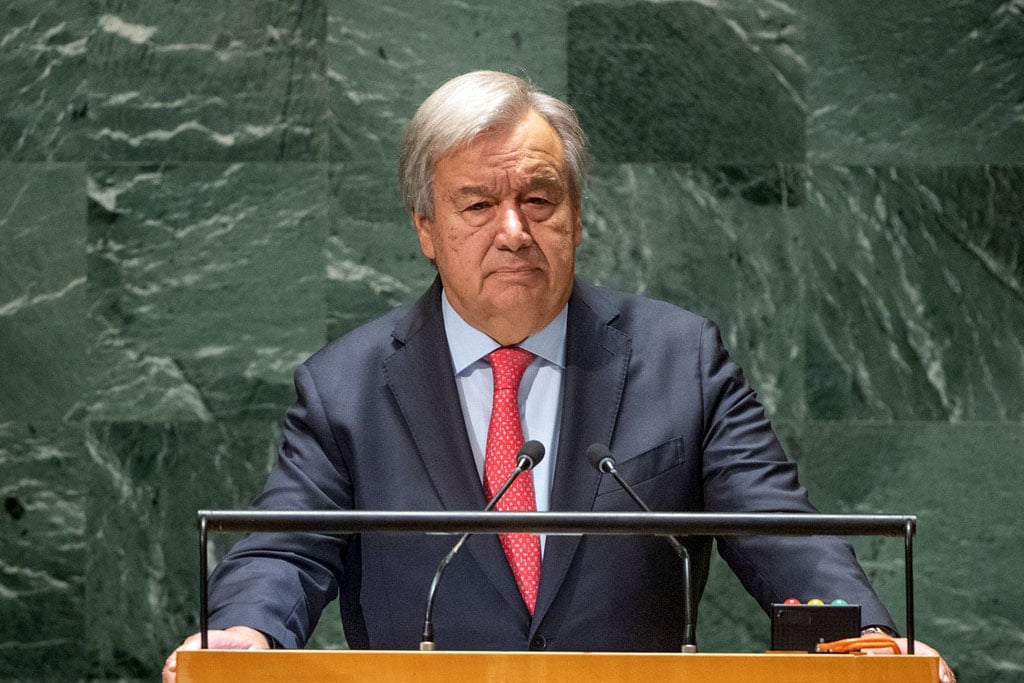United Nations Secretary-General António Guterres Call for Reparations
United Nations Secretary-General António Guterres recently issued a profound call for reparations in response to the transatlantic slave trade. In a statement released on the International Day of Remembrance of the Victims of Slavery and the Transatlantic Slave Trade, Guterres emphasized the need for reparations to address the historical injustices inflicted upon enslaved individuals.
Guterres utilized the language of modern-day progressives to convey the urgency and importance of reparations. He highlighted the stark disparities between those who profited from the slave trade and those who suffered its brutal consequences. Enslaved individuals were systematically deprived of essential rights such as education, healthcare, and economic opportunities, while those perpetuating the trade accumulated immense fortunes.
The Secretary-General underscored the enduring legacy of the transatlantic slave trade, noting that its impact continues to be felt through discriminatory systems rooted in white supremacy. Generations of exclusion and discrimination have persisted as a result of the atrocities committed during this dark period in history.
Guterres Advocates for Reparatory Justice
In his detailed address, Guterres pointed out the necessity of implementing reparatory justice frameworks to address the deep-rooted inequalities stemming from the slave trade. These frameworks are essential for fostering healing, repair, and ultimately, justice for those who have been marginalized and oppressed for centuries.
Guterres’ call for reparations extends beyond mere financial compensation; it is a plea for the creation of a more equitable and inclusive society where all individuals are afforded equal rights and opportunities. By acknowledging the historical injustices of the transatlantic slave trade, Guterres emphasizes the importance of working towards a future free from racism, discrimination, and hate.
Historical Context and Ongoing Struggles
The International Day of Remembrance of the Victims of Slavery and the Transatlantic Slave Trade serves as a poignant reminder of the millions of Africans who endured unimaginable suffering at the hands of colonial powers. Enslaved individuals faced unspeakable horrors, including rape, floggings, lynchings, and other dehumanizing acts.
Despite the passage of time, the descendants of enslaved Africans and people of African descent continue to fight for equal rights and freedoms worldwide. The consequences of the transatlantic slave trade are still acutely felt, highlighting the urgent need for reparations and repudiation of the systemic discrimination that persists.
António Guterres: A Profile
António Manuel de Oliveira Guterres, a Portuguese politician and diplomat, has been serving as the Secretary-General of the United Nations since 2017. Prior to his current role, Guterres held the position of Prime Minister of Portugal from 1995 to 2002, during which he made significant contributions to governance and international relations.
Guterres’ tenure as Secretary-General has been characterized by his unwavering commitment to addressing global challenges, including the promotion of human rights, refugee protection, and sustainable development. His extensive experience in politics and diplomacy has positioned him as a respected leader on the world stage.
Throughout his career, Guterres has advocated for social justice, equality, and the eradication of discrimination in all its forms. His call for reparations for the victims of the transatlantic slave trade is a testament to his dedication to upholding fundamental principles of fairness, equity, and human dignity.
Image/Photo credit: source url





